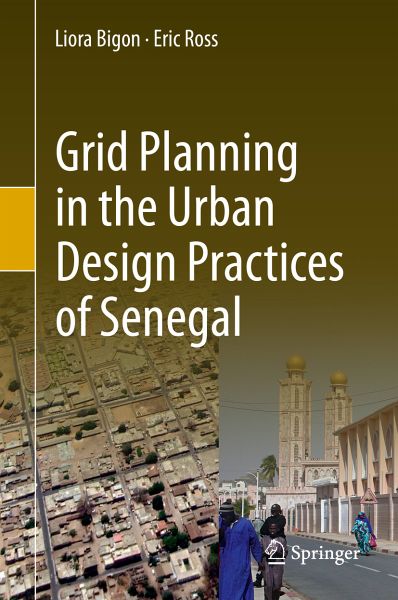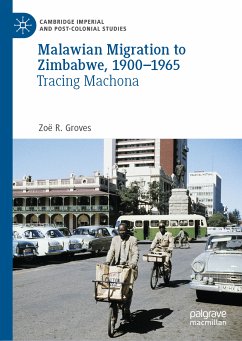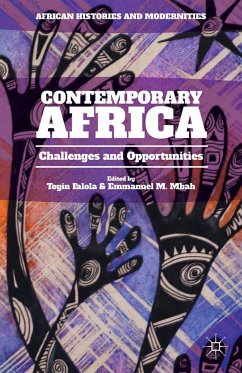
Grid Planning in the Urban Design Practices of Senegal (eBook, PDF)

PAYBACK Punkte
36 °P sammeln!





Dieser Download kann aus rechtlichen Gründen nur mit Rechnungsadresse in A, B, BG, CY, CZ, D, DK, EW, E, FIN, F, GR, HR, H, IRL, I, LT, L, LR, M, NL, PL, P, R, S, SLO, SK ausgeliefert werden.
Liora Bigon is a Senior Lecturer in the Department of Multidisciplinary Studies at HIT¿ Holon Institute of Technology, where she teaches (post-)colonial, urban and Islamic histories. She holds a PhD from the University of Manchester in architectural history and has written extensively on sub-Saharan Africa urban cultures, including: Garden Cities and Colonial Planning: Transnationality and Urban Ideas in Africa and Palestine (Manchester University Press, 2014, edited with Yossi Katz); French Colonial Dakar: The Morphogenesis of an African Regional Capital (Manchester University Press, 2016); Place Names in Africa: Colonial Urban Legacies, Entangled Histories (Springer, 2014, edited); and Gridded Worlds: An Urban Anthology (Springer, 2018, edited with Reuben Rose-Redwood).
Eric Ross is a Professor of Geography at Al Akhawayn University in Ifrane, Morocco, where he has been teaching since 1998. He holds a PhD in Islamic Studies from McGill University. He is an urban and cultural geographer whose research focuses on Muslim Africa. Ross has conducted research on Sufism and urbanization in Senegal as well as on cultural heritage and development in Morocco. He is the author of Sufi City: Urban Design and Archetypes in Touba (University of Rochester Press, 2008); and first author of Assessing Tourism in Essaouira (Al Akhawayn University Press, 2002). In addition, Ross has published articles for academic journals such as Urban Studies and Planning Perspectives, has authored chapters in eleven edited volumes, and has written entries for specialized encyclopedias including the Wiley-Blackwell Encyclopedia of Urban and Regional Studies and Oxford Research Encyclopedia of African History.
Eric Ross is a Professor of Geography at Al Akhawayn University in Ifrane, Morocco, where he has been teaching since 1998. He holds a PhD in Islamic Studies from McGill University. He is an urban and cultural geographer whose research focuses on Muslim Africa. Ross has conducted research on Sufism and urbanization in Senegal as well as on cultural heritage and development in Morocco. He is the author of Sufi City: Urban Design and Archetypes in Touba (University of Rochester Press, 2008); and first author of Assessing Tourism in Essaouira (Al Akhawayn University Press, 2002). In addition, Ross has published articles for academic journals such as Urban Studies and Planning Perspectives, has authored chapters in eleven edited volumes, and has written entries for specialized encyclopedias including the Wiley-Blackwell Encyclopedia of Urban and Regional Studies and Oxford Research Encyclopedia of African History.
Produktdetails
- Verlag: Springer International Publishing
- Seitenzahl: 210
- Erscheinungstermin: 1. Januar 2020
- Englisch
- ISBN-13: 9783030295264
- Artikelnr.: 58605673
Für dieses Produkt wurde noch keine Bewertung abgegeben. Wir würden uns sehr freuen, wenn du die erste Bewertung schreibst!
Eine Bewertung schreiben
Eine Bewertung schreiben
Andere Kunden interessierten sich für











